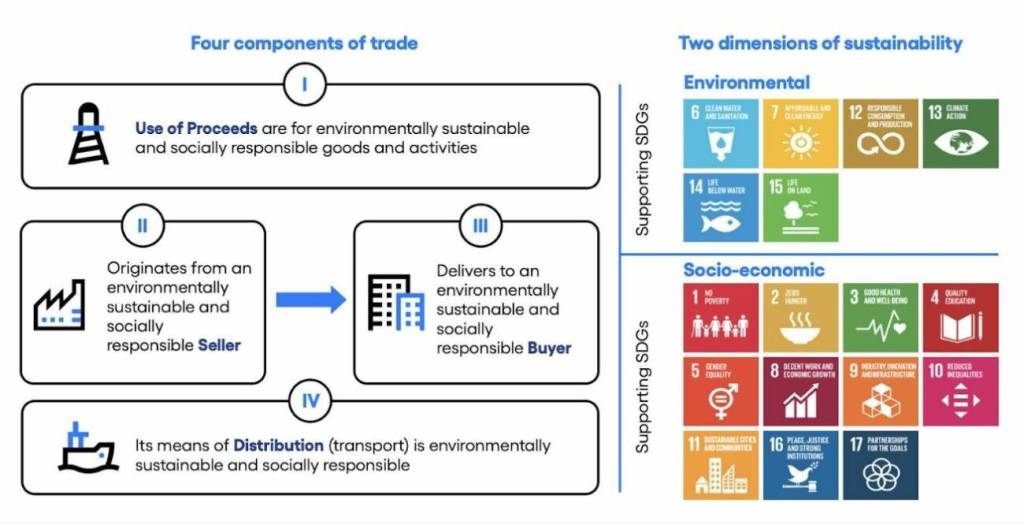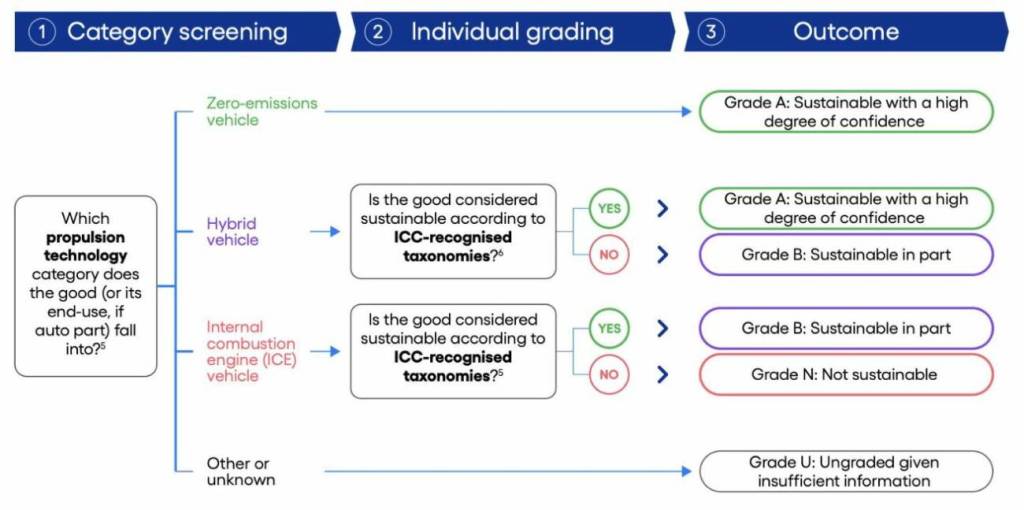While at COP28, held in Dubai, United Arab Emirates, the International Chamber of Commerce (ICC) has released its Wave 2 framework.
This follows the successful implementation of the Wave 1 pilot, marking an important moment in the evolution of global trade towards sustainability.
Background: The journey from Wave 1 to Wave 2
The journey began with the launch of the Wave 1 framework at COP27, focusing on the textiles sector.
This initial framework set out to establish a standardised method for assessing the sustainability of trade transactions.
Over 30 leading trade banks and corporates engaged in the pilot, providing critical feedback that shaped the development of Wave 2.
This feedback shows the necessity for a more inclusive framework that could address a broader range of sectors and provide a more nuanced assessment of sustainability.
John W.H. Denton AO, ICC Secretary-General, said, “Trade must transform itself into an engine for the implementation of the Paris Agreement and for sustainable development. It must also become a facilitator of sustainable practices across international, sectoral and enterprise levels.
“The growing interest in ESG provides a beacon of hope for change; yet this interest brings with it a greater demand for precision and clarity on what constitutes sustainable international trade and sustainable trade finance. We hope that the evolution of our Principles for Sustainable Trade will provide a platform to deliver on this imperative.”
Wave 2: Expanding scope and enhancing assessment
Wave 2 significantly broadens its scope, encompassing the energy, agriculture, automotive, and textiles sectors.
This expansion is crucial, considering these sectors’ substantial impact on global emissions and their role in the transition to a sustainable economy.
The framework now employs a holistic approach to sustainability, considering both environmental and socio-economic dimensions across four components of trade: ‘use of proceeds’, ‘seller’, ‘buyer’, and ‘distribution’.

A key innovation in Wave 2 is the introduction of a granular grading system.
This system allows for a detailed assessment of sustainability levels in trade transactions, moving beyond a binary classification to a nuanced understanding of environmental and socio-economic impacts.
Robustness and automation: Incorporating ESG scores
Another significant enhancement in Wave 2 is the incorporation of Environmental, Social, and Governance (ESG) scores into the assessment process.
This inclusion allows for a more objective and data-driven approach to evaluating sustainability.
By removing subjective judgment from the assessment process, the framework increases its robustness and potential for automation, making it more accessible and user-friendly for banks and corporates.
Example of grading use of proceeds, automotive sector:

Transportation and sustainability: A new focus
Recognising the significant carbon footprint associated with global shipping, Wave 2 introduces a standardised approach to assessing the sustainability of transportation methods in trade.
This addition underscores the ICC’s commitment to considering every aspect of the trade process in promoting sustainability.
Implications for global trade
The implications of the Wave 2 framework for global trade are far-reaching.
By providing a more comprehensive and standardised approach to assessing sustainability, the framework encourages the adoption of sustainable practices across various sectors.
It sets a new benchmark for sustainability in trade, paving the way for a more environmentally and socio-economically responsible future in global commerce.
Raelene Martin, ICC Head of Sustainability, said, “We are enormously grateful to the banks and corporates that have engaged in the piloting of the Wave 1 framework over the past year. Thanks to the tremendous support of the industry and other key stakeholders, we have been able to significantly upgrade the sectoral coverage and precision of the Principles – setting us on a clear path to establishing a common standard for sustainability in global trade.”
Stormy seas ahead
Despite these advancements, challenges remain.
Ensuring widespread adoption of the framework, particularly in regions where sustainability practices are still evolving, will be crucial.
Additionally, as global sustainability standards continue to develop, the ICC will need to ensure that the framework remains relevant and adaptable to changing norms and regulations.
The release of the ICC’s Wave 2 framework represents a significant milestone in the journey towards sustainable global trade.
As the world grapples with the urgent need for sustainable development, initiatives like the Wave 2 framework offer a blueprint for aligning global trade with environmental and socio-economic sustainability goals.
























